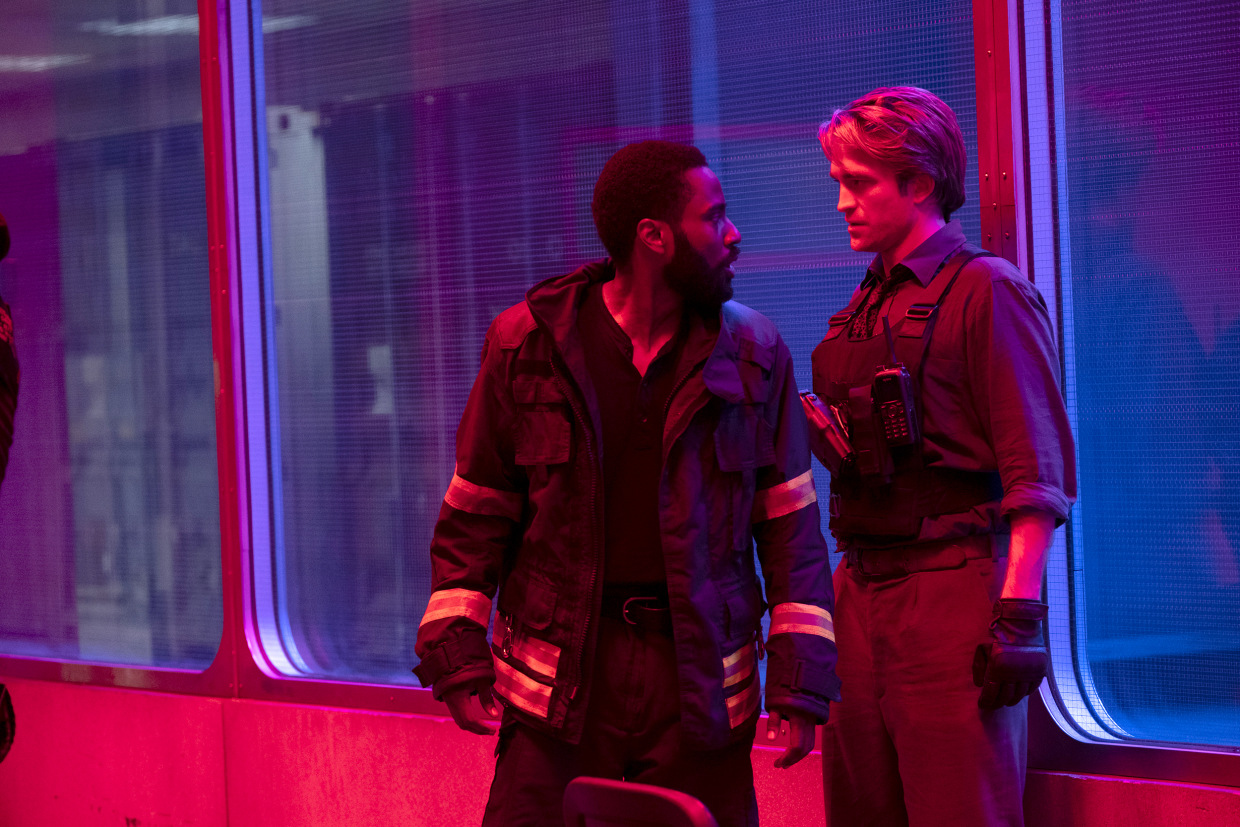Deciphering the Complexity: A Deep Dive into Christopher Nolan's "Tenet"
Introduction:
"Tenet," directed by Christopher Nolan, is a film that defies easy categorization. Released in 2020, it combines elements of espionage, science fiction, and mind-bending time travel, creating a narrative that challenges audiences to unravel its intricate layers. As with many Nolan films, "Tenet" has sparked intense debate and discussion, with its complex plot, stunning visuals, and philosophical underpinnings leaving viewers both mesmerized and puzzled. In this review, we'll embark on a journey through the labyrinth of "Tenet," exploring its themes, performances, and the sheer audacity of its storytelling.
Plot and Narrative Structure:
At its core, "Tenet" revolves around the concept of "time inversion," a technology that allows objects and people to move backward through time. The protagonist, known only as The Protagonist (played by John David Washington), becomes embroiled in a world of espionage and international intrigue as he uncovers a plot to use time inversion as a weapon of mass destruction. Nolan's narrative structure is typically non-linear, and "Tenet" is no exception. The film jumps back and forth in time, with scenes intertwining and intersecting in a complex web of cause and effect. As the audience tries to piece together the puzzle, "Tenet" challenges conventional notions of time and narrative coherence, demanding active engagement and multiple viewings to fully comprehend its intricacies.
Nolan's narrative structure is typically non-linear, and "Tenet" is no exception. The film jumps back and forth in time, with scenes intertwining and intersecting in a complex web of cause and effect. As the audience tries to piece together the puzzle, "Tenet" challenges conventional notions of time and narrative coherence, demanding active engagement and multiple viewings to fully comprehend its intricacies.
Themes and Philosophical Underpinnings:
"Tenet" explores a myriad of themes, including determinism vs. free will, the nature of time, and the consequences of our actions. The concept of time inversion serves as a metaphor for the cyclical nature of history, as characters grapple with the notion that the future can influence the past just as much as the past shapes the future.
Furthermore, the film delves into questions of identity and agency, as The Protagonist confronts his own role in the unfolding events and grapples with the moral implications of his actions. "Tenet" invites viewers to contemplate the nature of reality and the limitations of human perception, blurring the lines between past, present, and future in a dizzying display of cinematic prowess.
Performances and Visuals:
John David Washington delivers a charismatic performance as The Protagonist, anchoring the film with his blend of determination and vulnerability. Robert Pattinson shines as Neil, The Protagonist's enigmatic ally, providing wit and charm amidst the chaos. Kenneth Branagh is chilling as the film's antagonist, Andrei Sator, imbuing the character with a sense of menace and desperation.
Visually, "Tenet" is a feast for the senses, with Nolan once again pushing the boundaries of cinematic spectacle. From breathtaking action sequences to stunning practical effects, the film dazzles audiences with its technical prowess. The use of time inversion is particularly striking, as Nolan seamlessly integrates forward and backward-moving action in a seamless ballet of choreography and editing.
Criticisms and Interpretations:
While "Tenet" has garnered widespread acclaim for its ambition and originality, it has also faced criticism for its convoluted plot and dense exposition. Some viewers found the film's time-bending mechanics confusing, while others felt that its thematic ambitions outweighed its emotional resonance.
However, part of the beauty of "Tenet" lies in its open-endedness, inviting viewers to interpret its meaning and significance in their own way. Like a puzzle waiting to be solved, the film rewards repeated viewings and deep analysis, offering new insights with each subsequent watch.
"Tenet" is a bold and audacious piece of filmmaking that reaffirms Christopher Nolan's status as one of cinema's most visionary directors. With its mind-bending plot, philosophical depth, and stunning visuals, the film challenges audiences to expand their perceptions of time and reality. While not without its flaws, "Tenet" is a cinematic experience unlike any other, demanding active engagement and intellectual curiosity from its viewers. In the end, whether you view "Tenet" as a masterpiece or a muddled mess may depend on your willingness to embrace its complexities and unravel its mysteries.
Sound Design and Score::max_bytes(150000):strip_icc()/Tenet_623932932023-08594fe2375547d196739c5fccd4fc9e.jpg)
In addition to its visual splendor, "Tenet" features a masterful sound design and a pulsating score by Ludwig Göransson. The film's sonic landscape is as integral to the experience as its visuals, with the sound of reversing time serving as a constant motif throughout. From the thunderous roar of inverted explosions to the eerie hum of time-inverted dialogue, the sound design immerses viewers in a world where the laws of physics are constantly being challenged.
Göransson's score complements the film's kinetic energy, driving the action forward with its propulsive rhythms and haunting melodies. Whether accompanying intense action sequences or quieter moments of reflection, the score adds another layer of tension and emotion to the film, heightening the stakes and amplifying the sense of urgency.
Influence and Legacy:
As with many Nolan films, "Tenet" has already left an indelible mark on popular culture, inspiring countless debates, theories, and analyses. Its intricate narrative and mind-bending concepts have sparked a resurgence of interest in the science fiction genre, as audiences clamor for more stories that challenge their perceptions of time and reality.
Moreover, "Tenet" has solidified Nolan's reputation as a director unafraid to tackle bold ideas and push the boundaries of cinematic storytelling. While not without its detractors, the film's sheer ambition and audacity have ensured its place in the pantheon of modern cinema, setting a high bar for future filmmakers to aspire to.
Final Thoughts::max_bytes(150000):strip_icc()/Tenet_GP_6372389239032032-02a7fa40a4c3433dba4c538bde4549c0.jpg)
In the ever-expanding landscape of cinema, "Tenet" stands out as a bold and ambitious work of art. With its complex narrative, philosophical depth, and stunning visuals, the film invites viewers to embark on a journey through the corridors of time, challenging their perceptions and expanding their minds in the process.
While not without its flaws, "Tenet" is a testament to the power of cinema to provoke thought, inspire wonder, and ignite the imagination. Whether you're drawn in by its intricate plot, mesmerized by its breathtaking visuals, or simply along for the ride, "Tenet" offers an experience unlike any other, reminding us of the limitless potential of storytelling in the hands of a visionary filmmaker like Christopher Nolan.
























































